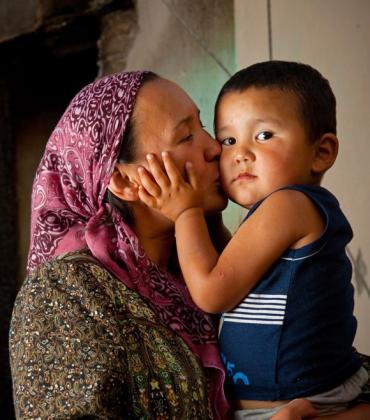The first report proposes a national multidimensional poverty index (MPI) tailored specifically to the Kyrgyz Republic. It incorporates indicators related to health, education, food security, living conditions and monetary poverty. Such a measure provides a ‘tracking tool’ to monitor the country’s progress on core aspects of well-being. The MPI offers the possibility of analysing relevant patterns of deprivations across regions as well as for different population groups. Although the MPI also allows for an assessment of the number of children living in deprivation, the report annexe provides a separate child poverty index that specifically accounts for children’s well-being needs from birth to adulthood.
“Multidimensional poverty is now a well-established concept at the global level, including in the UN's Sustainable Development Goals, but it is important to have nationally-adjusted indicators,” said Prof. Gassmann. “We were able to produce these multidimensional poverty indicators by working in close collaboration with the National Bureau of Statistics of the Kyrgyz Republic and representatives from different ministries and development partners. Our MPI has been officially approved by the Government as a measure to monitor progress towards the SDGs. This project was particularly gratifying as its output was developed together with the Kyrgyz stakeholders. It is a great example of the policy impact of our work.”
The second paper contributes to the policy discourse on child benefits in the Kyrgyz Republic by reviewing the national and international theory and evidence on targeting. It begins by introducing the academic literature on the advantages, disadvantages and preconditions of various targeting approaches and considers international experiences that may provide valuable lessons for Kyrgyzstan. Following national discussions on child benefit reforms, the paper simulates scenarios of possible policy alternatives, assessing their efficiency and equity. Finally, it reflects on the political, economic and technical feasibility of approaches to targeting child benefits in the Kyrgyz context. Given the COVID-19 crisis, the paper includes an analysis of the extent to which child poverty rates might increase and implications for social assistance.
“The Kyrgyz Government has been discussing child benefit reforms for a long time. Access to the means-tested benefit was limited and the main concern was including families that might not be poor. It is an old and well-known dilemma of targeting. In this paper we propose a new approach: ‘affluence testing’ – that is, excluding the richest 20% of the population. It may be a way to bridge between universal and means-tested social protection,” said Prof. Gassmann.
Download the reports via the links above or view them directly below.



